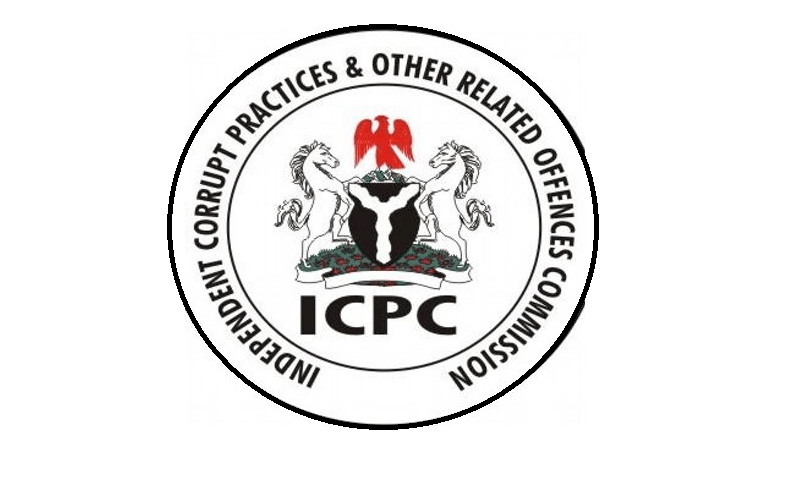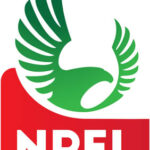The Independent Corrupt Practices and Other Related Offences Commission (ICPC) has vowed to deal with defaulters in the execution of constituency projects in the country.
The chairman of the ICPC, Bolaji Owasanoye, said this during the launch of the Constituency Projects Tracking Group (CPTG) in Abuja yesterday.
Daily Trust reports that constituency projects have been dogged by controversy with many people including former President Olusegun Obasanjo describing it as corruption.
Since its introduction about a decade ago, constituency or zonal intervention projects have gulped about N100 billion naira every year.
But speaking yesterday, Owasanoye said in the light of annual budgetary allocations to constituency projects, and actual releases by the government, it is believed that the impact ought to be more visible.
He noted that open source information on the level of implementation in 16 focus states in 2016, showed that out of 436 constituency projects that were tracked, 145 were completed, 77 on-going, and 211 not executed.
He said for 2016; out of 852 projects in 20 states tracked, 350 were completed, 118 were on-going, 41 locations were not specified in the budget, while 343 were not done.
He noted that there was only 40 per cent performance of 2016 constituency projects in 20 states, adding that for 2017; 1,228 constituency budgets were tracked for performance as at June 2018.
“Out of these, 478 were completed, 173 were in an unspecified location, 200 on-going, 13 abandoned, while 364 were not started,” he said.
Owasanoye said, to verify amounts appropriated for projects and its utilization, ICPC will collaborate with the Nigerian Institute of Quantity Surveyors (NIQS).
He said the formation of a Constituency Projects Tracking Group will enhance the commission’s ability to proactively prevent and eradicate the diversion of public funds.
He said any public officer, legislator or civil servant who attempts to sabotage the projects can also be quickly identified, investigated and prosecuted.
He said the ICPC-CPTG is envisaged to investigate fraudulent procurement practices in the award of contracts for constituency projects.
He said they are also to monitor the implementation of constituency projects from inception to completion, and make recoveries on projects confirmed to have been inflated or which contractors under-performed.
The ICPC would also track contracting companies for all statutory regulatory compliance like; tax, pension, NHIS among others.
He said the since taking over leadership, its new board has focused on evaluating capacity gaps, infrastructure deficiency, funding challenges and redirecting the focus of the ICPC for effective performance.
He said ICPC is streamlining its focus to spend its budget on public interest issues, noting that it is reviewing the personal and capital cost in government agencies.
He noted that this would assist government block leakages in expenditure and sanction infractions, adding that tax fraud and Illicit Financial flow team would be set up.
He said the team would collaborate with the Federal Inland Revenue Service to close the gap in public revenue by capital flight through commercial transactions.
Controversy over constituency projects
Daily Trust reports that the controversy over constituency projects stemmed from allegation that members of the National Assembly have turned themselves to ‘contractors’ using the projects rather than remain committed to their business of lawmaking.
For example, there were allegations in the past that lawmakers were allowed to nominate companies, which they had interest on, to execute various projects in their constituencies.
It is believed that the sheer secrecy surrounding the appropriation for and execution of these “projects” has rendered them not only controversial but also mysterious.
While the lawmakers themselves see the idea as a legitimate attempt to “evenly spread projects in line with federal character,” critics have questioned the constitutional basis of the constituency projects, tagging them “masked corruption.”
Also, while proponents of the implementation of constituency projects were of the view that it brings development to the grassroots, those opposing it opine that it has no place in Nigeria’s democratic journey.
Apart from civil society groups, one of the most virulent critics of constituency project is former President Olusegun Obasanjo, who was once quoted as saying: “You and I know what constituency projects mean. It is simply corruption.”
In the United States, constituency project is known as ‘Pork Barrel” but the difference is that out there, the work must be executed with the legislator not having any personal gain from the contract.
In recent times, however, both the Senate and House of Representatives have intensified efforts to legitimize constituency projects by introducing bills to that effect.
Only last year, a draft law titled ‘A Bill for Constituency Development Fund (CDF) by Rep Solomon Adaelu (PDP, Abia), was introduced in the House of Reps. The bill proposed at least 2.5% of the annual budget for the provision of constituency projects across the country.
Similarly, Senator Stella Odua (PDP, Anambra) in 2015 sponsored an explicit bill that sought to allocate about 25% of annual budgets to constituency projects.
Besides, there had been allegations in the past that lawmakers use their offices in cahoots with government agencies, to siphon funds meant for constituency projects.
Last year, Sen Shehu Sani (PRP, Kaduna) said constituency projects have no place in Nigeria’s democratic or constitutional development.
He said instead of exerting energy on execution of constituency projects, lawmakers should focus more on oversight functions.
Although captured in the annual budgets, constituency projects have become bragging rights and campaign strategies for lawmakers, and a measure of their performance by their constituents.

 Join Daily Trust WhatsApp Community For Quick Access To News and Happenings Around You.
Join Daily Trust WhatsApp Community For Quick Access To News and Happenings Around You.

